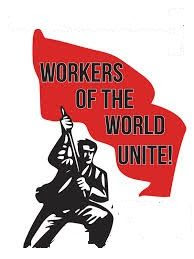The world economy was entering what could become "a protracted period of feeble growth and elevated inflation," the World Bank said recently, with many countries facing recession. Firms from Melbourne to San Francisco have been laying off workers, including so-called gig workers who work on demand. Demand for casual workers has surged in recent years with the growth in e-commerce and the so-called platformisation of work, with advocates saying gig work offers both sides greater freedom and flexibility. The pandemic further boosted demand.
When Indian online grocer Fraazo cut commission and scrapped its fuel allowance, more than 100 delivery riders went on strike, shuttering outlets and taking their noisy protest to the street. The workers said last month's new regime made it near impossible to make ends meet amid record petrol prices.
"Fuel is so expensive. We have to travel long distances to deliver some orders and without the fuel allowance, it is not feasible to do this job," said Hemraj Sharma, a Fraazo rider in Noida, near the Indian capital of Delhi. "We work 10-12 hours a day, but we are left with no money at the end for our families," he said.
Global inflation has hit platform workers particularly hard, squeezed by higher fuel prices and lower earnings, said Rikta Krishnaswamy a national coordinator at the All India Gig Workers' Union. "Inflation is hurting everyone, including people who normally use these platforms, and are now cutting back on cab rides and food orders," she explained. "At the same time, platform companies have cut fuel allowances and changed the wage structure because demand has fallen. So the workers are bearing the brunt of inflation with no safety nets."
In Cairo, Mohamed Nagy, who earned about 5,000 Egyptian pounds ($267) a month at a bus ride app, SWVL, was suddenly laid off along with dozens of fellow drivers. The Egyptian startup said last month that it was laying off more than 30% - about 400 - of its workers as part of its strategy to turn profitable next year. Nagy, 30, who also drives for Uber Bus, said his income has been cut in half. "I have financial commitments, and I was suddenly left in the cold with no other alternatives," said Nagy, who must support his family and pay off a vehicle loan.
In reaction to the tough new economic climate, gig workers across the globe have gone on strike in increasing numbers, calling for fuel allowances, a minimum pay and benefits such as medical insurance and sick leave.
Ride-hailing drivers in South Africa went on a three-day strike in March, while drivers for Talabat couriers in Egypt called a two-day strike in April. Talabat drivers also went on strike in the UAE, where industrial action is rare, following a walkout by Deliveroo drivers. Drivers for ride-hailing apps Uber and Ola in India held a one-day strike in April.
"We are going to see more such protests and strike actions - the pandemic and the current economic climate have shown gig workers just how precarious they are," said Krishnaswamy. "It is one of the worst forms of employment, but many of them are migrant workers with few other options," she said.
Gig economy workers hit by high fuel prices and layoffs (trust.org)


No comments:
Post a Comment